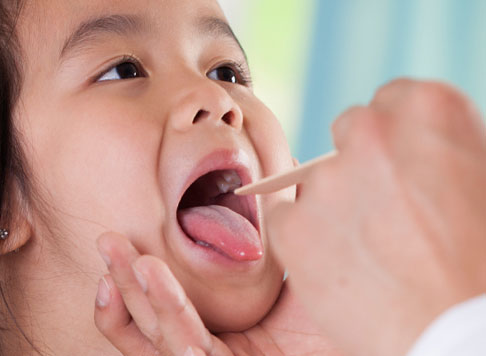Canada News
Mumps outbreak prompts alert, call to make sure vaccinations up to date

Manitoba Health says there have been 176 confirmed cases of mumps in the province since September and up to last Friday. (Photo: Center for Disease Control and Prevention)
REGINA –A mumps outbreak in Manitoba has reached the highest number of cases in two decades and that’s causing concern in neighbouring Saskatchewan.
Manitoba Health says there have been 176 confirmed cases of mumps in the province since September and up to last Friday.
“Normally, we do have between four and maybe eight in a bad year and so, yes, that’s why we’re classifying this as an outbreak,” Dr. Richard Rusk, Manitoba’s medical officer of health for communicable diseases, said Tuesday.
“But as soon as it goes to the community, that’s where it becomes that little bit more risky that it can spread.”
Most of cases were initially university students between 18 and 29 years old, living in Winnipeg or involved in sports. One case in Manitoba involves a member of the Brandon Wheat Kings with the Western Hockey League.
But health officials say mumps cases are now being seen in all ages and throughout Manitoba.
Rusk said it’s the highest number of cases since 1996 when Manitoba introduced a program to give two doses of the mumps vaccine to children.
Some of those infected were fully vaccinated, said Rusk, who noted the vaccine is about 85 per cent effective.
“We see it’s spreading, but it’s not quite as severe as back in the ’60s, when you would have quite a lot more of those severe outcomes.”
Rusk said Saskatchewan health officials are right to be concerned. There’s a really high probability the virus will spread because of how mobile people are between provinces.
“It could be through a sports team, for instance. That’s probably how it got through to Alberta.”
In that province, seven players and a coach with the WHL Medicine Hat Tigers have also been hit by mumps. Officials have said there have also been up to four cases of mumps in Edmonton, which typically sees zero to two cases each year.
Dr. Denise Werker, Saskatchewan’s deputy chief medical officer, said Saskatchewan residents and doctors need to be on alert.
“My concern is that it is just a matter of time,” Werker said.
“There are health-care providers who may never have seen mumps in their clinical practice, and so they need to be prompted to think about that when somebody presents with a swollen parotid gland.”
The Ministry of Health says there were seven reported cases from 2010 to 2016. There haven’t been any cases in Saskatchewan so far this year.
Symptoms include fever, swollen cheeks and neck. The virus is found in saliva and respiratory droplets. It is spread from person to person through coughing, sneezing, and coming into contact with an infected person’s saliva by sharing drinks or utensils, or by kissing.
Hockey players share water bottles or can drip saliva on each other because they are in close contact, but the alert doesn’t mean people should stop sport activities, Werker said.
“It is … a wake-up call for everyone to make sure their vaccination is up to date and to take precautions in terms of what happens in the locker room,” she said.
A statement from the Western Hockey League last Friday said teams were being advised to take all necessary precautions, including sanitization of locker rooms and equipment. All clubs were also asked to review vaccination histories of players and staff and to strongly recommend vaccination if necessary.
The league also instructed teams to advise players to refrain from any direct contact with fans right now.
People born before 1970 are likely to have been exposed to mumps as a child and are considered to have natural immunity.
A single dose vaccine for mumps was introduced in Saskatchewan in 1979, but it didn’t become apparent until years later that two doses were needed for the vaccine to be effective over the long term.
Immunity is waning for those who only got a single dose.
“The risks depend on your immunity, and that immunity is related to whether you’ve had one dose or two doses of vaccine and how long ago you had that vaccine,” said Werker.





















